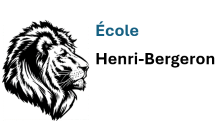Core Curriculum
Learning does not end with the ring of a school bell; it occurs in every facet of our lives. We learn every day at school, home, work, and in our community.
French Immersion
French is an official language in 33 countries worldwide. More than 130 million people speak French, on five continents, and it is the second most studied language in the world. Over 25 percent of students in the Louis Riel School Division attend one of its 10 French Immersion schools.
The French Immersion program is designed for English-speaking students who wish to pursue their education in a French milieu. Students learn all courses in French with the exception of English Language Arts. Students enrolled in the program begin in Kindergarten or Grade 1.
French Immersion is…
- designed for children whose first language is not French
- available to any student registering for Kindergarten, Grade 1 or Grade 4
- an effective way for children to become fluent in French while achieving all of the outcomes of the regular curricula
- an opportunity to become functionally bilingual
- ideal for students who wish to become citizens of the global community
- a door to the future—creating opportunities for travel, study and career choice
French Language Arts
The French Language Arts course stresses the importance of integration in second language acquisition. It complements and supports learning across the curriculum by generating confidence and competence in overall communication and serves as an impetus for personal growth.
English Language Arts
Language proficiency generates confidence and competence in communicating, and allows students to excel in other disciplines. The provincial curriculum stresses the integrated nature of the six language arts: listening, speaking, reading, writing, viewing and representing.
Basic French
French is an official language in 33 countries worldwide. More than 130 million people speak French, on five continents, and it is the second most studied language in the world. All students in the Louis Riel School Division receive French language education through the Basic French curriculum. Offered from Grade 4 to Grade 12, it is intended for English-speaking students enrolled in English schools.
Mathematics
The K to Grade 12 provincial mathematics curriculum is organized by grade and the four strands: Patterns and Relations, Statistics and Probability, Shape and Space, and Number. Hands-on learning activities, problem-solving, visualization, communication, connections to everyday life, technology, estimation, mental math and strategic instruction are means to helping students develop mathematical skills and understanding.
Music Education
Music is an integral part of a well-rounded education. In the Early Years, it provides children with a multi-activity approach to acquiring basic literacy, performance and appreciation skills. During the Middle Years, the sequential development of these skills is continued and constantly reinforced through the study of a more specialized performance area.
Physical and Health Education
Physical health, mental wellness and safety are essential to a student’s success and development. The following general learning outcomes summarize the goals for Physical and Health Education:
- Movement
- Fitness Management
- Safety
- Personal and Social Management
- Healthy Lifestyle Practices
Practical Arts
Industrial Arts and Human Ecology programming provides settings for students to develop and practise skills for daily living, while integrating knowledge from other subject areas. The Practical Arts program ensures that students graduate with the skills necessary in their personal lives, while pursuing fulfilling careers. Allowing students to experience a combination of Human Ecology and Industrial Arts affords them substantial hands-on training and valuable life-long skills.
Science
Students need to develop inquiry, problem-solving and decision-making abilities, if they are to become lifelong learners and scientifically literate individuals. The more effectively students can interpret information, solve problems, make informed decisions, accommodate change and create new knowledge, the more prepared they will be to interact with the world around them. Science education is a key element in developing scientific literacy and in building a strong future for Canada's young people. Visit the Manitoba Education website for more details regarding the provincial science curriculum.
Social Studies
Social studies helps students acquire the skills, knowledge and values necessary to become active, democratic citizens and contributing members of their communities, locally, nationally and globally. The provincial curriculum includes citizenship, the core concept that focuses social studies learning at all grades and provides opportunities for students to explore the complexities of citizenship in four areas:
- Active Democratic Citizenship in Canada
- Canadian Citizenship for the Future
- Citizenship in the Global Context
- Environmental Citizenship
Visual Arts
Fostering an appreciation for the arts promotes understanding. Cultivating artistic abilities encourages creativity and communication. When students learn to respond to art, they grow. The Louis Riel School Division celebrates its Visual Arts programming, and believes that arts education is not about the final product, but rather the journey. Students are encouraged to celebrate in their progress and development.
Visit the LRSD website for more information about curriculum.

